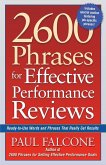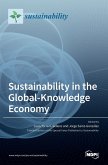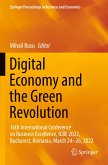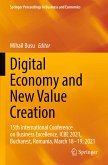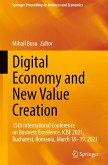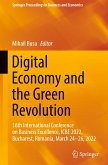This book presents a comprehensive, international and up-to-date review of the key contributions of information services to the Knowledge Economy. Chapters contributed by experts in different areas of LIS focus on the crucial roles libraries, archives and museums are playing in their home institutions -private, public, non-profit-, as much as their impact on the economy and society as a whole. Boosting the Knowledge Economy: Key Contributions from Information Services in Educational, Cultural, and Corporate Environments has a particular interest in learning services, exploring principles and strategies for their implementation - from marketing strategy to analytics -, and covers implications for the LIS profession.
"The book is organised into three sections- key contributions from libraries, key contributions from archives and cultural heritage institutions, and implications for the library and information services professions. It covers a wide range of topics such as educational services and programs for the LIS sector, relevant metrics, the role of artificial intelligence in the provision of information services, quality management processes and issues, management of television audio-visual archives, provision of a generalised data model, and the importance of organisational archives. . . . The book is scholarly yet remains quite readable despite the complexity of some of the topics discussed. The chapter on transparency and social responsibility for libraries and archives is particularly interesting and covers the identification and measurement of transparency indicators in a very topical and relevant way. . . .It is also refreshing to have a work like this that is non-American in its approach and content so we might benefit from different perspectives." --JALIA - Journal of the Australian Library and Information Association
"A knowledge economy is one in which the acquisition, creation, dissemination, and utilization of knowledge contributes to economic growth, and a key point noted for this book is that it Provides new insights into the value of information services in the context of the knowledge economy...The content is international in scope and each chapter stands on its own quite nicely as a solid resource for that area of study. Given the scholarly nature of the various topics covered, this book would be suitable for libraries that have a library science program, a focus on international librarianship, or a focus on knowledge economy and knowledge organizations." --Journal of Electronic Resources Librarianship
"A knowledge economy is one in which the acquisition, creation, dissemination, and utilization of knowledge contributes to economic growth, and a key point noted for this book is that it Provides new insights into the value of information services in the context of the knowledge economy...The content is international in scope and each chapter stands on its own quite nicely as a solid resource for that area of study. Given the scholarly nature of the various topics covered, this book would be suitable for libraries that have a library science program, a focus on international librarianship, or a focus on knowledge economy and knowledge organizations." --Journal of Electronic Resources Librarianship


